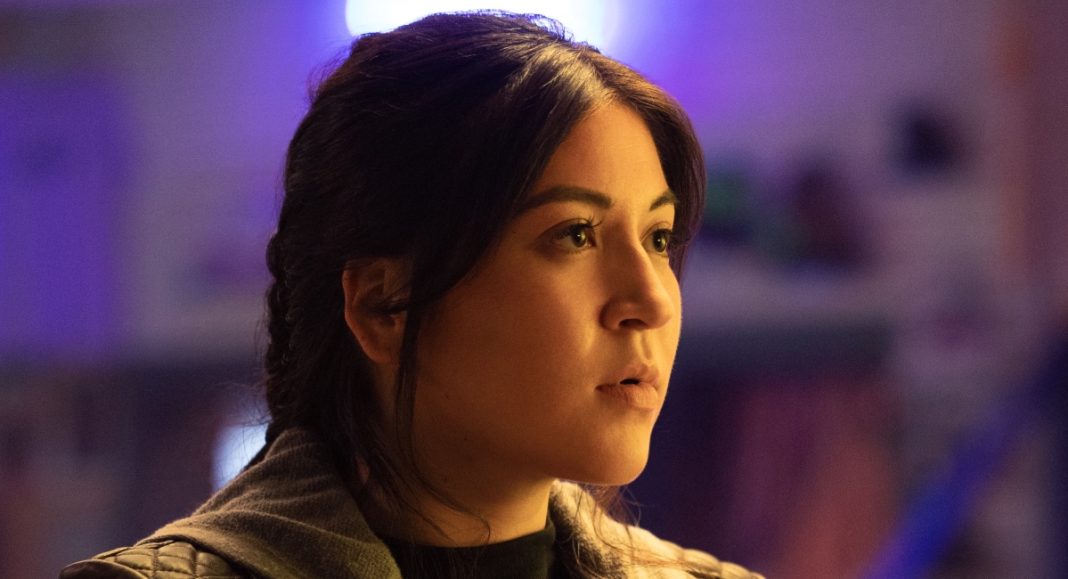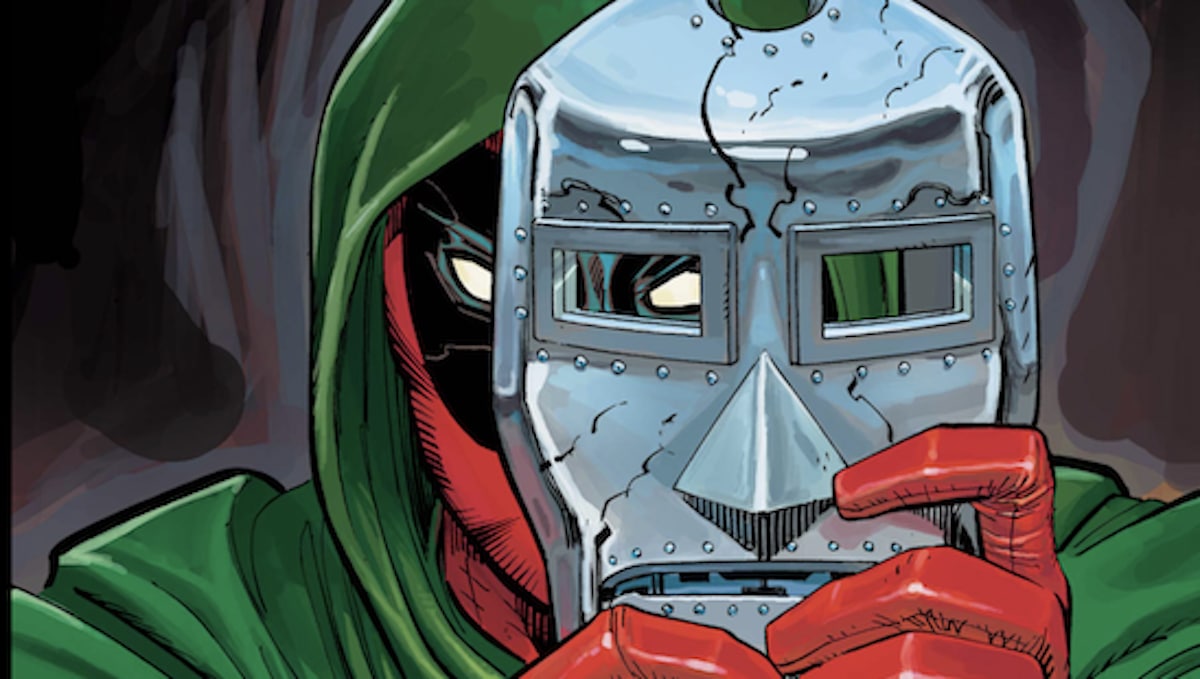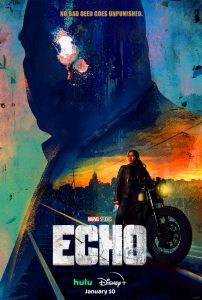
Streaming tonight, Marvel’s Echo tells the story of Maya Lopez, a disabled Choctaw anti-hero with mysterious connections to her ancestors. As an orphan who was semi-fostered by the villain Wilson Fisk, aka Kingpin, she’s alienated from her family and has made many, many enemies.
Where the show starts
Echo starts in the wrong place, and that’s the easiest part of this review. Instead of starting with a hook and trusting Echo‘s story and titular main character, the writers give us 27 minutes and 25 minutes of flash-forwards until they hit where the show really should have started. They should have followed the Choctaw origin story with Maya (Alaqua Cox) shooting Fisk (Vincent D’Onofrio). It would have been dramatic and made us wonder why she did it and what fallout would come.
This is the first project under the Marvel Spotlight banner, which focuses on more grounded, character-driven stories where viewers don’t have to be watch other entries in the larger Marvel Cinematic Universe. It’s an important shift considering the daunting amount of movies and shows someone would currently have to watch to be current at this point. But it also really means that they should have trusted the audience more and started the show with Maya’s choice of a new path.
Instead, the show immediately falls into a common ableist trap: the need to know how/why a disabled person is disabled above everything else. For this, we have to start with her childhood and show her Deaf mother, and then show her losing her leg, which is a massive waste of time in a limited series. It’s a shame the show didn’t take its cue from Cox, who hasn’t disclosed how she lost her leg.
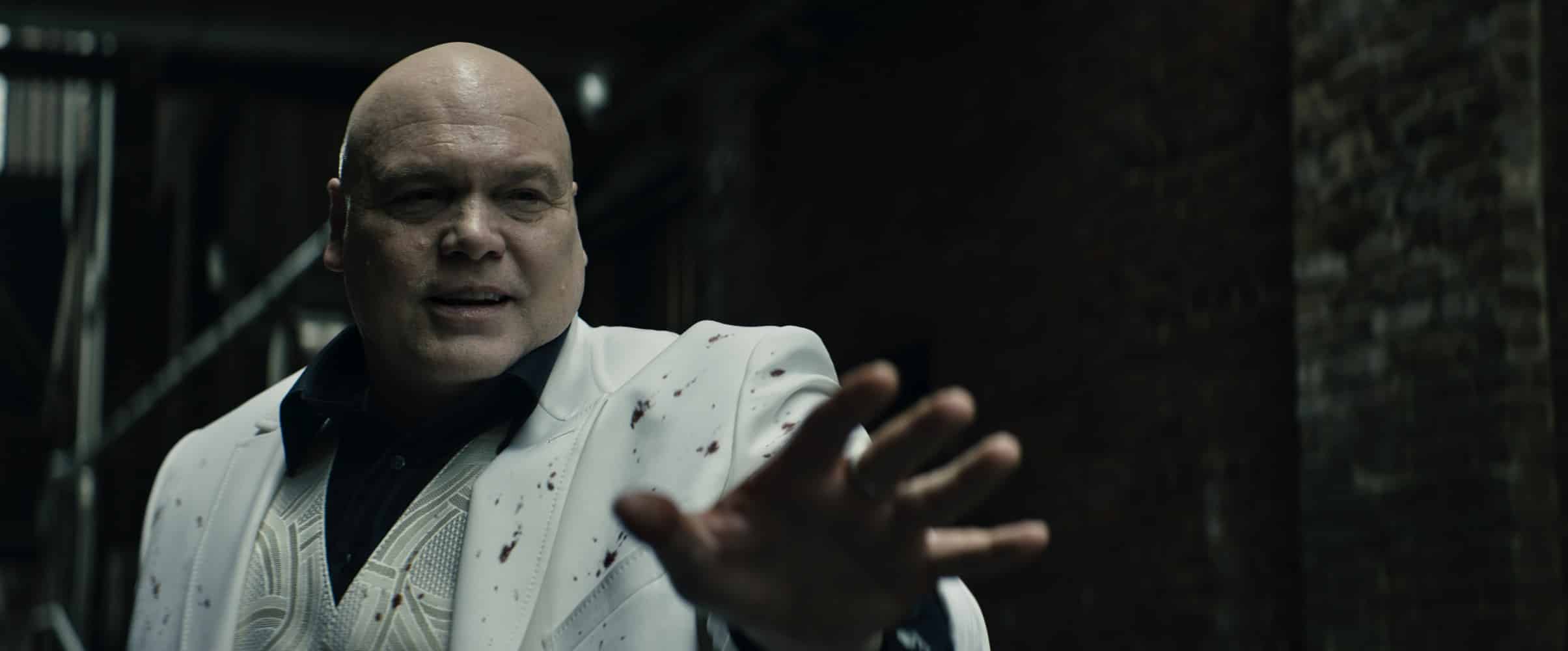
Disabled representation – Echo got a lot right
Cox herself, though, is a win. She’s not just talented, she’s also a disabled actress portraying a disabled character, which is incredibly valuable and important to the disabled community. Furthermore, Cox is indigenous. Someone at Disney was finally paying attention.
Continuing on the theme of what the show got right, let’s talk about the sound design. Echo‘s first three episodes balance periods of sound and silence, as well as one metal song, to dramatic success. The metal song is perfect as it serves as a distraction for her hearing opponents and cover for her movements while having no detrimental effect on her. It’s attention-catching and emphasizes how Maya views the world. In the periods of pure silence, viewers are forced to take in other details to tell them what’s going on, much like a D/deaf person would.
Marvel did pay attention to some features Maya would need as a D/deaf person as well, like the flashing light to indicate someone’s at her door. However, a young Maya is also seen in a classroom where there appears to be no interpreter, and she is woken up from nearly passing out on her motorcycle by a vehicle horn. There’s also no reaction to her not obeying shouted police commands due to not hearing them, which doesn’t fit with reality.
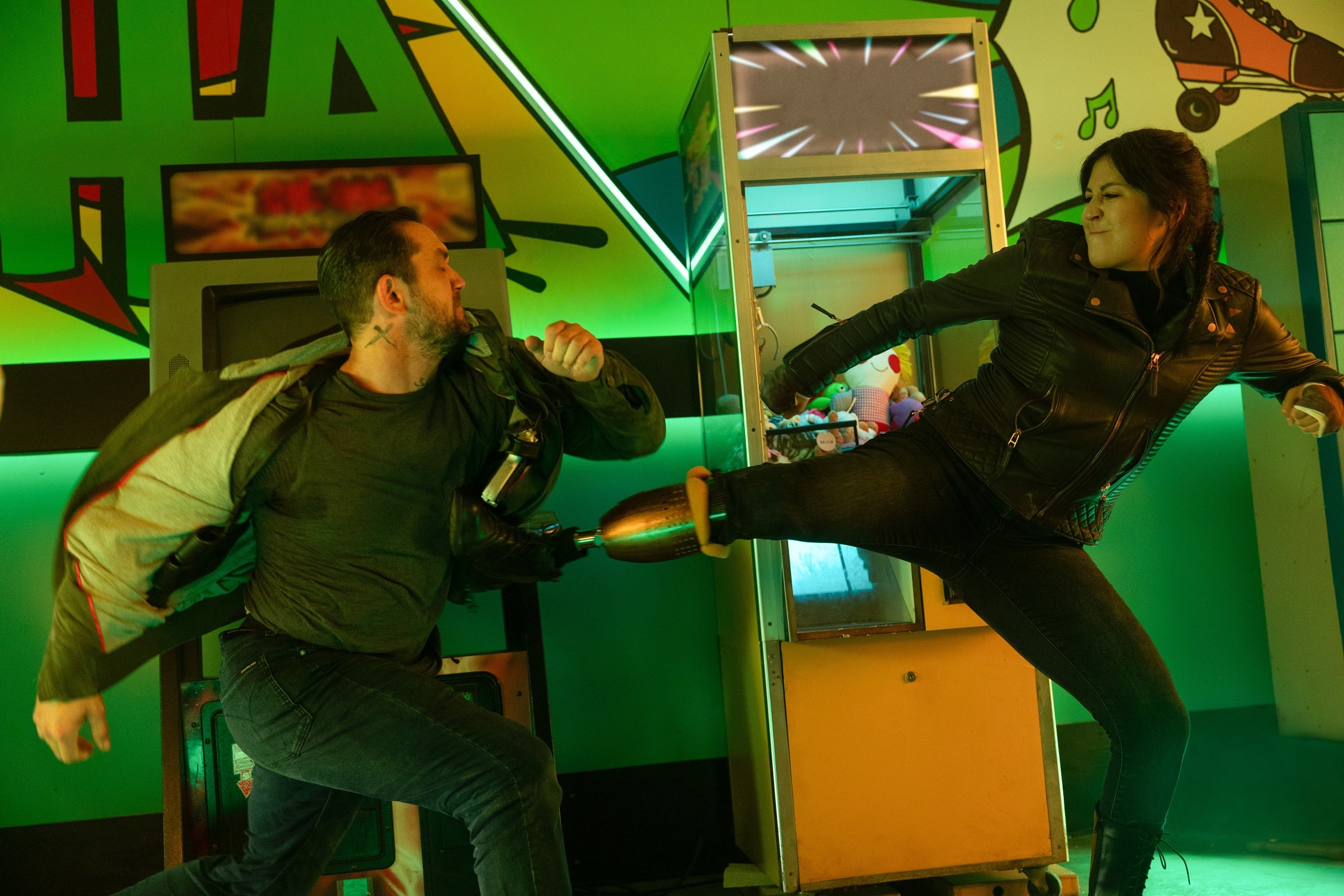
On the other hand, they don’t seem to forget about her prosthesis, and it’s utilized in combat and the plot. Her family knows and uses sign language fluently to converse with her, and Fisk has an interpreter with him. People accept her as Maya instead of “the disabled girl;” it’s incredibly refreshing. She’s not here to teach people. She gets to be a person, flaws and all.
The antihero
Unfortunately, so far, Maya is mostly just flaws. Maya’s not given much to do other than fight, be angry and resentful, and try to push people away. It’s refreshing that she doesn’t fall into common harmful, negative tropes where someone’s anger and villainy is due to their disability. She’s disabled and angry and so far villainous, but that’s all part and parcel of who she is and none is caused by the other.
The show’s emotional core seems to be her grandfather, Skully (Graham Greene). While her relationship with her cousin Biscuit (Cody Lightning) shows how easy she finds it to use anyone around her. Granted, that’s par for the course with anti-heroes, but we haven’t found anything she values yet except power, which sets her more in the villain camp. I’m hoping the rest of the episodes in the first season give us reasons to root for Maya in the current timeline.
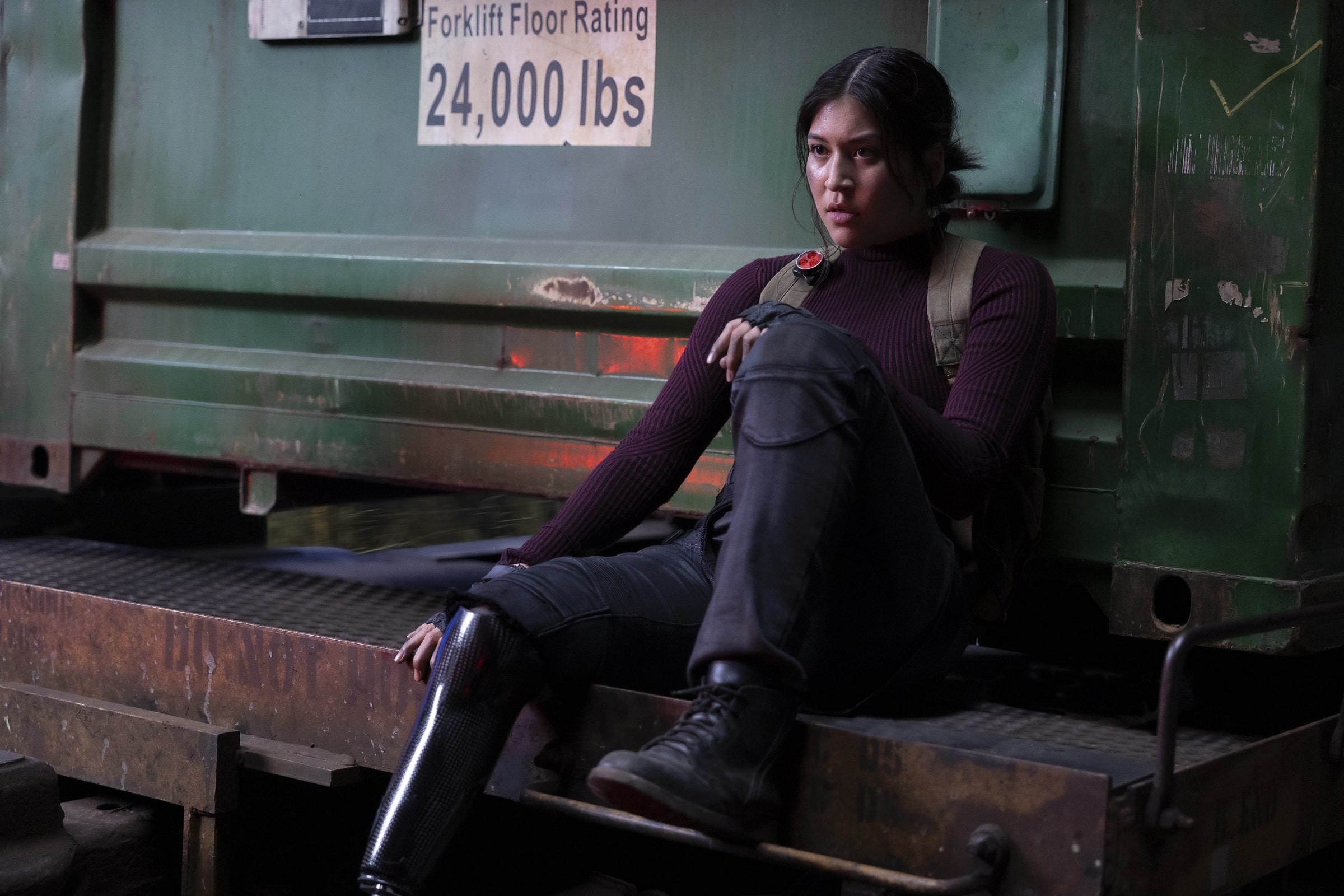
In summary
Overall, there’s a lot of promise here. I can’t speak directly to the Native American portions, though Marvel has done its homework: directors include Sydney Freeland (Navajo) and Catriona McKenzie (Gunaikurnai), and Jason Gavin (Blackfeet) is among the executive producers. On the disability front, I can say Marvel has been respectful, aware, and taken its time, except that they resurrected a disabled slur that I’ve been glad to see waning of late and was not quite prepared to hear again.
Despite the disabled slur, other small stumbles, and how it starts in the wrong place, I’m mostly hopeful about Echo. I think the starting point might risk people walking away prematurely, but there’s a lot of potential here, and I’m genuinely looking forward to watching the rest.
Echo debuts on Disney+ and Hulu on January 9, 2024.


